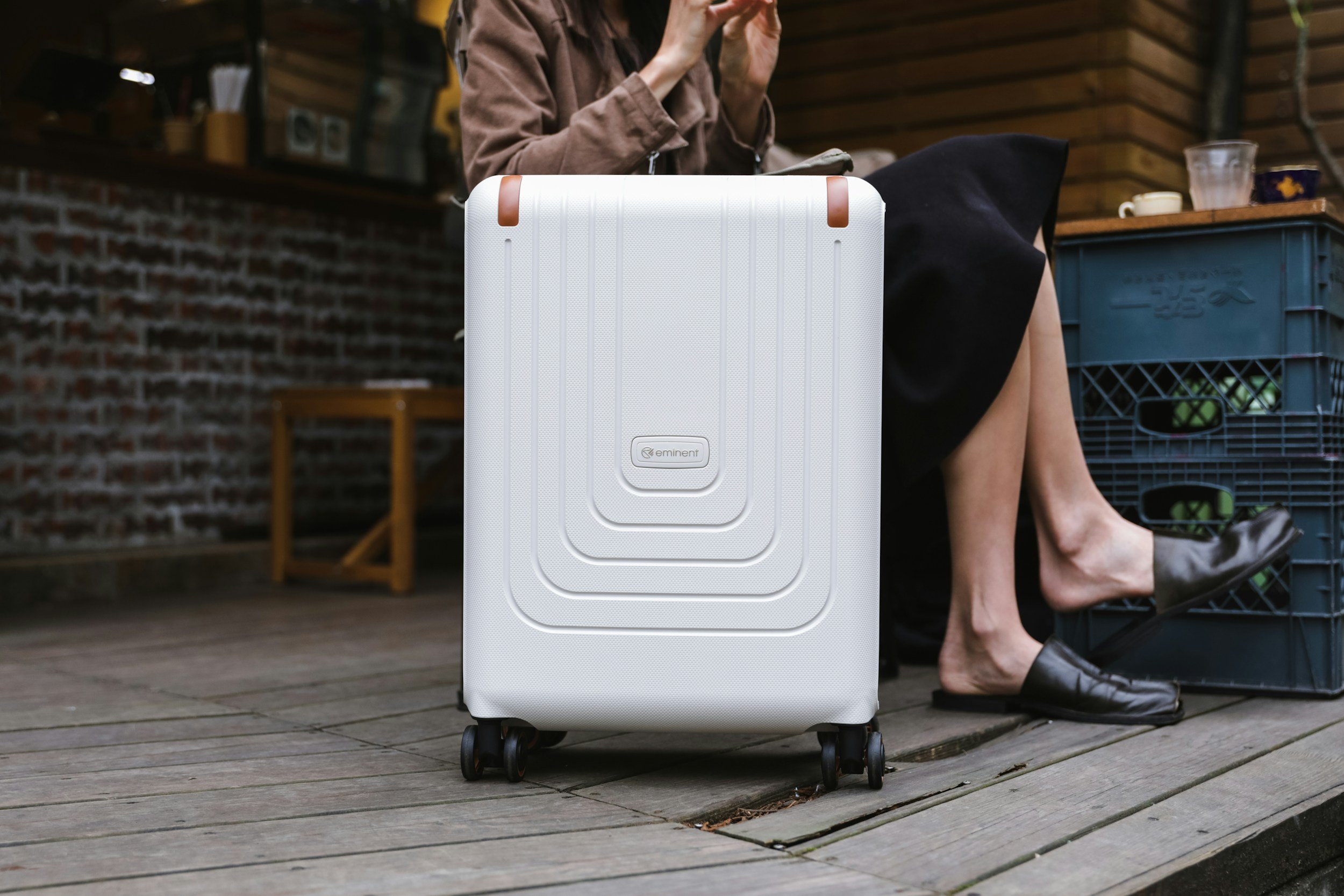Running List of Things All Travelers Should Know
The #1 thing to know? The friendly skies aren’t always very friendly.
As a travel professional, there are so many things I wish travelers were more aware of. Here are just a few of them!
Airlines
It is normal for airlines to change the time of your flight after booking, sometimes multiple times.
It is normal for airlines to charge for seat assignments, even business class seat assignments.
It is normal for airlines to move your seats around, even after you’ve booked.
If you miss your outbound flight, your return flight is usually canceled too. No, they don’t hold it for you
Airlines owe you nothing for delays due to weather, even if it ruins your entire trip. That’s where insurance might help.
Please book a minimum 2 hour transfer time when booking connecting flights to Europe. I prefer 2.5 hours myself. 3 hours for trips to Asia and Australia/New Zealand.
Booking a Basic Economy fare? You may not be allowed a carry-on. You also probably can’t select seats or make changes—at all. Buyer beware! Do not book Basic Economy.
Your bag can be lost or delayed even on a direct flight. Always carry essentials (meds, one change of clothes, chargers) in your carry-on.
Put Air Tags in all your checked bags.
When you book through me, I pay for a luggage retrieval service for all my clients. If you arrive in your destination without your luggage, file a claim IMMEDIATELY and provide the information to my luggage tracking service IMMEDIATELY and they will track down your bags for you.
Know your EU/UK passenger rights. If your flight departs from or arrives into Europe/UK, EU261 and UK261 rules apply. Airlines won’t volunteer this, but you may be entitled to real cash compensation for delays/cancellations.
IDs and Passports
To fly domestically, you must have a a REAL ID. If you re not sure what that is, please check the rules in your state.
Email a copy of your passport to yourself. Even better, save it to Google Drive or a folder on your phone.
If you are renting a car in a foreign country, please get an International Driving Permit at AAA.
Your passport must match your airline ticket exactly. Middle names, extra hyphens, misspellings—any discrepancy can mean denied boarding.
Airlines will not let you board if you have less than six months left on your passport. You can’t argue with them on this.
Many countries require two to four blank pages in your passport—not just valid passport dates.
If you are transiting in the UK, even if you are not staying in the UK, you should apply for the UK entry visa. This way, if your flight is delayed or something happens, you can leave the airport. There are no hotels airside in London Heathrow so without a UK ETA, if your flight is changed or cancelled and you get stuck in London for the night, you will be sleeping on the floor of the airport.
Hotels
Hotel check-in time is check-in time. (Generally 3 pm or 4 pm.) If you arrive to your destination at 9 am, do not be surprised if you cannot check in to your hotel room. If you want to go straight to bed, please book your hotel for the night before. (I can help with this.)
Hotel rooms outside the US can be smaller than what you are used to at home. Expect less storage too. Always check the square footage. Don’t book rooms smaller than 20 sqm if you are two or more people.
It is very rare to find hotel rooms with two Queen beds in one room outside the US. Where these rooms exist, they are usually found in US chain hotels.
Connecting hotel rooms are hard to find outside the US, but I know where to look and how to guarantee the connection.
Not all hotels in Europe have air conditioning. It is important to check this. Also, many hotels have set dates for turning on the air conditioning and turning off the heat. I know this seems odd to Americans but this is how European hotels work.
In Europe, most hotels do not use top sheets. They also do not provide face cloths although many American hotel chains will.
In Europe, it is rare to find King beds. European beds are more generally Queen size. Some US chains and 5 star luxury hotels will have King-sized beds.
Elevators aren’t universal. Some boutique hotels, especially in Europe, have none—or tiny ones. If stairs are an issue, confirm accessibility in advance.
Customer Service
Customer service outside the US may be different from what you are used to at home. Especially in Europe, be prepared for slower service and/or indifferent service. If it takes forever to get the check at dinner, it’s not you! But remember what Anthony Bourdain said: “Getting angry and frustrated in much of the world doesn't help at all. It's incomprehensible, you lose face, it makes you look ridiculous. Have a willingness to try new stuff. Be grateful for any hospitality offered.”
Insurance*
If you have pre-existing conditions, insurance generally needs to be purchased within 14 days of the first payment towards your trip to get coverage for cancellation. (i.e., if you later have to cancel your trip for a health reason which is related to a pre-existing condition, if you didn’t purchase insurance immediately after your first payment towards your trip, your claim may be denied.)
Credit card travel protections are not a substitute for comprehensive travel insurance. Read the fine print (and then re-read it). Most credit card travel protection does not include medical coverage.
“Cancel For Any Reason” coverage doesn’t mean full reimbursement—it's usually up to 75% .
“Cancel for Any Reason” coverage generally must be purchased within 14 days of the first payment towards your trip.
If you say no to travel insurance, when something goes wrong, the airline/hotel will not “just refund you.” Make sure you carefully review all cancellation policies.
If you do not want to pay for travel insurance to cover your for cancellation, definitely get travel insurance to cover you for sickness/medical/evacuation. These plans are usually pretty cheap.
*Antidote Travel LLC is not a licensed insurance agent. If you have questions about insurance, these must be directed to the insurance provider.
Money & Payments
Only use credit cards when making purchases abroad. Only use your debit card at cash machines. (But keep reading.) Should fraud occur, credit cards offer much stronger protections than debit cards.
Bring at least two credit cards with you when you travel just in case one is rejected. I like to carry both a Visa and an Amex.
The Discover Card is not widely accepted outside the US.
Not all credit cards waive foreign transaction fees. Check yours before you go.
You’ll get a better exchange rate at a regular bank ATM than at a currency exchange kiosk or a cash machine run by a currency exchange company. (Steer clear of Euronet and Travelex machines.)
Beware of “Dynamic Currency Conversion” (aka the scam where you’re charged in USD at a much worse rate). Always pay in local currency! At ATMs, always withdraw in the local currency; do not let them charge you the USD rate!
Many small businesses, especially in Europe and Asia, are cash-only—or add a 3 to 5% surcharge for credit cards.
Many luxury hotels in Europe place large holds on your credit card at check-in. While this is a normal practice at most 4 and 5 star hotels, the holds in Europe can be larger than what you are used to.
Cell Phones & Tech
Free Wi-Fi isn’t always safe. Avoid logging into banks or sensitive accounts on public hotel or café Wi-Fi without a VPN.
Plus adapters ≠ converters. Most electronics these days are dual-voltage, but not all (especially hair dryers, curling irons). Blow a fuse, and you’ll regret not checking.
Do not bring your US hair dryer or curling iron or similar device with you when you travel. A plug adaptor is not sufficient for a hair dryer or a curling iron.
WhatsApp is global. In many countries, WhatsApp is the standard way to reach drivers, guides, and even hotels. Download and test before you leave.
I’m a big believer that your phone should work the same way abroad as it does at home. Do not be cheap with your cell phone! Contact your cell phone provider to understand international data packages and/or reserch esims. I have T-mobile and now in some markets, I barely pay anything for 5G internet.
Got any other tips? Let me know!
About Krista
I’m a Virtuoso travel advisor based in West Palm Beach, Florida. University of Notre Dame undergrad, University of Chicago MBA. Prior to moving to Florida to take care of my elderly mom with Parkinson’s Disease, I spent over 11 years living and working in London, England. My background and 20 year career in the investment management industry have taken me all over the world. To date, I’ve been to 78 countries. Now I bring the joy of travel to others as a Virtuoso travel advisor. I offer a 30 minute complimentary vacation consultation to anyone looking to plan their next trip.
Like my page on Facebook for more travel inspiration. Or follow me on Instagram for real-time updates!
Ways I Can Help You
Knowledge and experience. I’ve been to 75+ countries.
I can offer VIP perks and amenities at thousands of hotels around the world. Virtuoso perks are just the start. I can also upgrade your stay at Marriott, Hilton, IHG, Four Seasons, and Rosewood properties…among others. Think free breakfast, priority for upgrade, a hotel credit, and more! (See my website footer for all the brands I work with.)
I have a huge storehouse of luxury cruises: I partner with all the major cruise lines…Royal Caribbean, Silversea, Viking, Ama Waterways, Tauck and more. I can add onboard credits and other perks that you cannot get by booking direct.
I have vetted villa rentals with concierge service all around the world
Private jets.
Yacht charters.
Small group and private touring through my partners Project Expedition and Tours by Locals.
Airport transfers.
VIP on arrival and VIP on departure airport services. (Get met at the plane door!)
Travel insurance. Don’t leave home without it!




